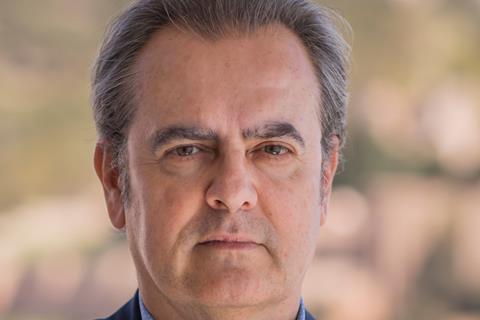
Malaga film festival director Juan Antonio Vigar is ready for the curtain to rise on his 10th edition in charge of the Andalucian event.
The world premiere of Someone To Look After Me (Alguien Que Cuide De Mí ), novelist Elvira Lindo’s debut as a film director, will open the festival tonight, screening out of competition. It will close on March 19 with the world premiere of Paz Jiménez’s Como Dios Manda, also playing out of competition.
Vigar has programmed a competition line-up of 20 titles; 12 from Spain and eight are from Latin America; seven are by women.
They are a mix of world premieres and Spanish premieres that screened in Berlin, notably Estíbaliz Urresola Solaguren’s 20,000 Species Of Bees and Carla Subirana’s Sica.
The industry programme, Mafiz {Malaga Festival Industry Zone) runs from March 13-17, with highlights that include works in progress screenings and meetings, pitching events and a country spotlight on Peru. It also includes the second edition of the Spanish Screenings XXL, showcasing new Spanish cinema to an international audience of buyers, festival programmers, producers and financiers.
Vigar explains the role Malaga plays in highlighting Spanish and Latin American cinema to the local and industry, through both the festival and the Mafiz events.
What themes have emerged from the films you have selected for competition this year?
The topic of identity, reflections about who we are and our place in the world. These are especially relevant after the pause for thought the pandemic brought. 20.000 Species Of Bees discusses gender identity, while the search of the father figure is tteh subject of Sica, and the personal search in Matria by Álvaro Gago.

The Spanish industry is investing a lot in supporting a rising generation of filmmakers. How do you believe that wave is evolving?
Just for the official competition alone we received 195 feature submsisions so it gives us a pretty accurate picture of names and trends. It makes me very happy to see new names and, looking at our festival’s history, also see how filmmakers that only recently were taking their first steps in Málaga have consolidated their careers like Carla Simón, Carlos Marqués Marcet and Elena Trapé.
I’m proud to see their desire to make films that connect with audiences and have a social conscience. Talent-wise, the future looks bright in Spain but we must make sure that from an industry point of view we can efficiently provide the resources, channels and visibility that talent deserves. That is a collective effort that involves Malaga. We must all play a part. Spanish cinema deserves to be known internationally, its content, its stories, have a universal potential.
Which films have most benefitted from a Málaga premiere in recent years?
We had Lullaby by Alauda Ruiz de Azúa in competition last year [where it won best film, best screenplay and best actress ex-aequo for Laia Costa and Susi Sánchez] after screening at the Panorama section at the Berlinale. It was a great success with the audience and critics and went on to win three Goya awards. Both the director and producers acknowledge the strategic role Malaga played in this journey.
This year we are honouring the work of Carla Simón with the Malaga Talent Award, a festival very close to her heart. She underlines the importance of premiering her films in Malaga as a crucial stepping stone for the release of her films (Summer 1993 and Alcarràs) in Spain. All the names of the new wave of Spanish talents have at one point or other come to Malaga.
How is the role of the Malaga Film Festival on the international circuit evolving?
The decision we took in 2017 to embrace Latin American cinema and strengthen the industry area have been key in boosting the festival and its positioning. We have managed to turn Malaga into a platform for Latin American talent, diverse in countries of origins and content.
Our industry area, the Mafiz (Malaga Festival Industry Zone), has 10 different events, giving us the opportunity to help develop projects in different stages. We take into account the big picture, the value chain that helps films get made and get seen. This year, for example, we have a film in competition La Pecera, a Puerto Rico-Spain co-production, directed by Glorimar Marrero Sánchez, that started in Mafiz.
We are also invested in helping films attract buyers. So far we have 1.500 professionals accredited for the Mafiz, a number that could get rise before the start of the industry zone [on March 13].

























No comments yet